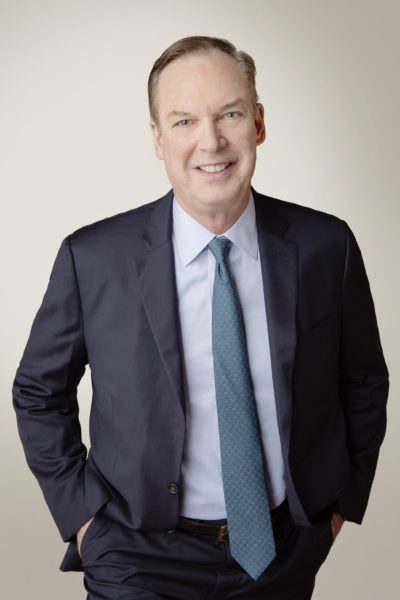
Kevin Clark, President of Silgan Dispensing Systems, talks with Cosmétiquemag about his strategy to become a leader on the beauty market. In June, this subsidiary of Silgan Holdings acquired the Dispensing Systems, Metal and Brazil businesses of the French company Albéa.
Silgan is a major player in the packaging industry. What is its core business?
KEVIN CLARK: Silgan Holdings has annual sales of about 5 billion dollars. Our core business is rigid packaging, and our activity is split into three major divisions. The first (Silgan Containers) is dedicated to metal containers for foods and pet products, with annual sales of about $2.2 billion, and the second (Silgan Closures) focuses on closure systems, with annual sales of $2 billion. Silgan Dispensing is part of the latter. Lastly, we have a plastic container business for beauty, food, household and industrial products. It operates mainly in North America and has annual sales of about $650 million. In more precise terms, Silgan Dispensing offers a very complete catalog of solutions for the personal care & beauty, health care, food and home & garden markets. We operate in Europe, Brazil, Asia and the Americas via twenty-two production sites.
Silgan Dispensing finalized its acquisition of Albéa’s Dispensing Systems, Metal and Brazil businesses in June. What has this brought to Silgan in terms of expertise and markets?
K.C.: Our overall vision is to provide packaging solutions that can improve consumers’ daily lives. Our mission is to become “the” partner that brands need in order to increase their market share. To accomplish this, our strategy is based on five pillars: differentiation, which is possible only with increased consumer knowledge; greater agility, which enables us to serve both physical stores and e-commerce more quickly; cutting-edge industrial equipment; product innovation; and our staff and corporate culture. Our transaction with Albéa has helped us strengthen all of these points.
Is beauty a key market for you? What were the strengths of the three Albéa businesses that attracted Silgan Dispensing?
K.C.: Beauty is fundamentally important for us. This acquisition has helped us expand our product offer and our technical know-how. We believe we have the most complete catalog for beauty and fragrance. For example, this acquisition has strengthened our position on the foam market as well as on the rigid packaging market in Brazil. The second point involves the location of the acquired sites: these new plants will help us serve both local and international companies. Lastly, we have added a team of innovation and customization experts. That’s one of the main reasons why we wanted to complete this acquisition.
In concrete terms, how many manufacturing sites does this acquisition involve?
K.C.: We have added nine sites in all: two in Brazil, three in North America for metal and dispensing systems, and four in Europe (two in France for fragrance and cosmetics, one in Spain and one in the Netherlands). It’s the largest acquisition ever for Silgan Dispensing.
What are the upcoming challenges for Silgan Dispensing in the current climate? What are your priorities?
K.C.: Of course, the main priority is the security of a highly efficient supply chain. Another challenge involves samplers, since brands are no longer able to present their products to consumeay they did before the health crisis. We offer a broad range of sampling and miniature format solutions to meet these needs. Lastly, eco-design remains an essential focus, and we are also the leader in post-consumer recycled (PCR) packaging.
How has the company dealt with the health crisis?
K.C.: Since our product range is mostly compatible with personal care products, demand for all. The health crisis has also increased the need for agility, because the way consumers get access to beauty products has changed. With e-commerce, it is necessary to have this category of products, has increased significantly since the start of the health crisis. At the same time, demand for other products has slowed, such as for fragrance and certain beauty products, since non-essential stores have been closed, travel retail sales have dropped, and there has been a drastic decrease in social interactions. As a result, some of our customers have preferred to postpone launches, particularly for fragrance, until 2021. However, we have seen a clear rebound in business in Asia. There’s been a great number of new products, most of them personal care-oriented, and thus we did very good business in the spring and summer.
Interview conducted by Jessica Huynh
